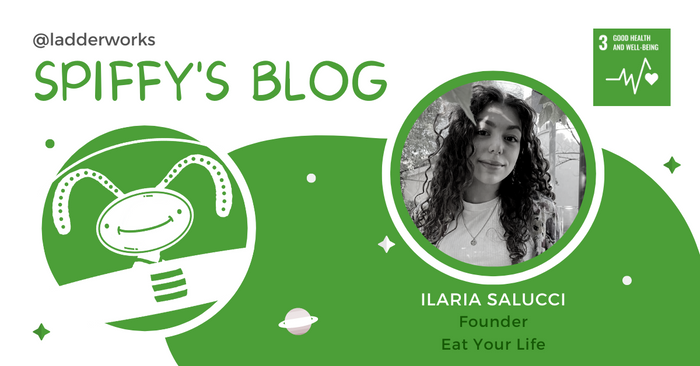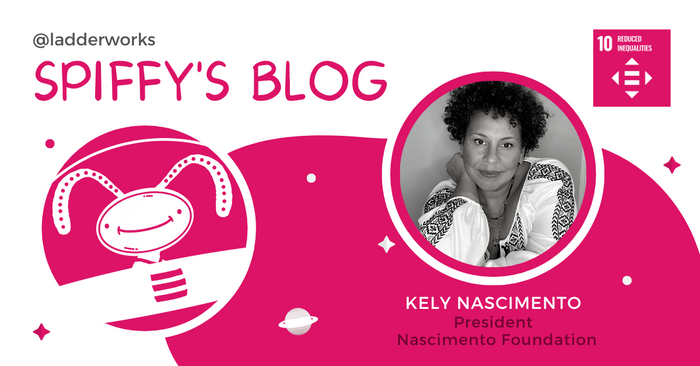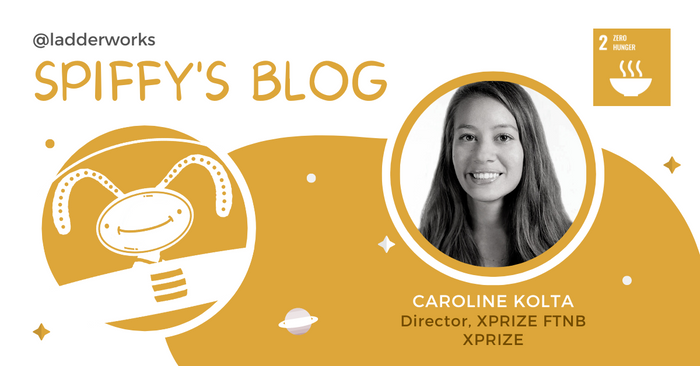Ilaria: Glad to be with you, Spiffy! My project aims to educate teenagers on the importance of nutrition while preventing eating disorders from arising among the young. I have condensed my research and personal advice into a website, eatyourlife.org, where teens can read and learn what society and school do not teach: to love themselves. The content is accessible to everyone to reach a vast, diverse audience. Moreover, users can create an account to reflect on their achievements and growth by filling out a journaling form.
Kely: Glad to be with you, Spiffy! The personal challenge for me is always that there is so much need in the world that it is difficult to not be able to help everyone. Raising money is also always a challenge. The focus of our work is on two elements of the world of sports: “sports for development,” which is sports used as a tool to address the world's greatest needs and further the UN Social Development Goals (SDGs), and “sports diplomacy,” which means—as an individual, a brand, an organization, a culture, a nation—how do you use sport to tell your story? How does your involvement in sport tell us about what you believe? These are areas that are incredibly powerful in sustainable development and storytelling, but they also are areas that are still not commonly understood.
Sep 20, 2022
Posted by: George Romar
CA,
Caroline Kolta,
Los Angeles,
SDG 12,
SDG 13,
SDG 14,
SDG 15,
SDG 2,
SDG 9,
USA
Caroline: Glad to be with you, Spiffy! Traditional, animal-derived food products are highly desirable to most of the world population. Did you know that, in 2020 alone, 574 million metric tons (the weight of or 50,000 Eiffel Towers) of meat, fish, dairy, and eggs were consumed?




